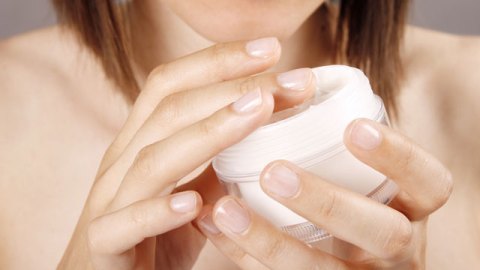A rose by any other name… is still a rose. And so’s the skin cream you’ve just spent a fortune on.

Judging by what I’ve beenreadingonline, BBcreams, an all-in-one treatment/moisturizer/makeup/sunscreen mashup that first gained popularity among Korean actresses and starlets and is now used by almost every other gal in North and Southeast Asia, is officially THE next big thing in cosmetics in the West. The popularity of BB Cream–the BB stands for Blemish Balm or Beauty Balm depending on you speak with–is easy to understand. It’s light, makes one feel and look great, and saves time, replacing 2 or more products with just one. That it’s been touted as an “Asian miracle cream” also adds to the hype and cult appeal.
Out here in Asia, BB Creams are pretty old hat. In fact, you’d be hard pressed to find BB creams advertised or aggresively marketed in any of our more mature markets. What is pushed heavily, instead, is a category of creams and similar products that promise to lighten or whiten one’s skin. Turn on any TV, go to any movie, open any magazine or newspaper, and sure enough, you’ll be subjected to an advertisement, usually featuring a pale-faced East Asian starlet (like Gong Li, Ziyi Zhang or some of their younger and more local counterparts), pushing the miracle-working properties of these amazing creams. And given that so many women in my part of the world are still fixated with having the porcelain or ivory complexions that were the benchmark of beauty in so much classic Asian literature, these creams are cash cows for cosmetic companies operating in Asia.
But what in the world is a skin whitening or lightening cream? Well, the majority of these creams don’t actually make one’s skin lighter. I mean, if anyone ever did come up with a purely cosmetic–as opposed to invasive or intrusive–solution to truly change one’s pigmentation, it would be a real scientific breakthrough. What most of these creams really do, as this was told to me (confidentially) by an insider that helps look after the skincare business of one of the biggest manufacturers in the world, is even out irregular pigmentation, using one’s lightest natural tone as the baseline. Which is actually pretty cool. But whiten? Of course not.
So given the current craze for BB creams in Europe and America, it makes sense that the world’s cosmetics companies are eager to roll out yet another Asian miracle cream to be the next NEXT big thing. Of course, the idea of marketing skin whitening creams to Caucasions is a little stupid. The solution? A simple semantic switcheroo. If you happen to spot some new creams on the market with names like Radiance, Brightening, Luminosity, Glow, or a number of other light-derived descriptors, chances are these are the same whitening creams being sold to Asian women, with different names. In the same way that American movies used to get renamed when being exported to Asia, these creams are simply being renamed and repackaged for Western consumers. Instead of whitening, they now add a luminescent glow to a women’s complexion. A simple solution to sell the same product to two different audiences with completely different (but admittedly not unrelated) brand promises.
So why should you care? Because if one audience out here is being told a product does one thing, and another audience somewhere else is being told it does something else, the question is, who do you believe? Or rather, does this product really do anything? Or is the result simply–for lack of a better term–cosmetic?
Photo credit: Karuka/Shutterstock





